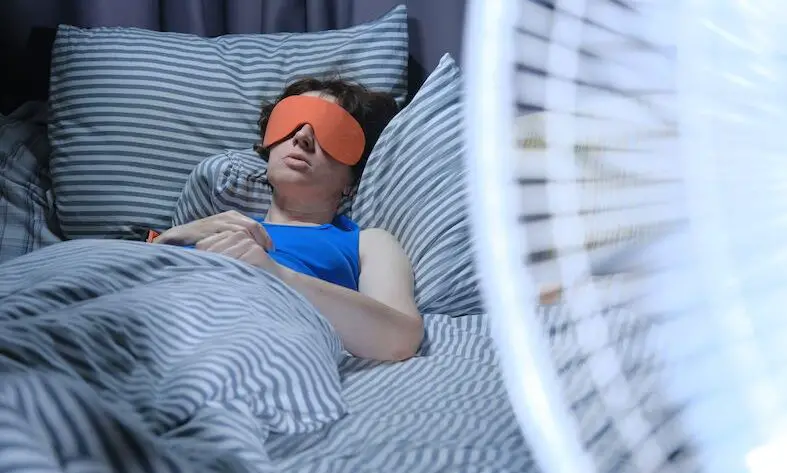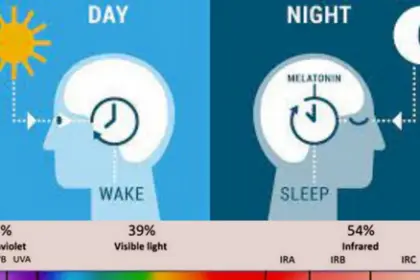Chilly nights have a way of inviting us to snuggle beneath warm blankets, but what about those who intentionally embrace the cold room for the sake of a good night’s sleep? The age-old debate of whether sleeping in a cold room, coupled with the soothing hum of a fan, is a boon or bane continues to pique the curiosity of sleep enthusiasts and health-conscious individuals alike.
As we delve into the realm of bedroom thermodynamics, it becomes evident that there’s more to this nocturnal practice than meets the eye. In this article, we uncover the insights shared by medical experts as they unveil the pros and cons of sleeping in a cold room and employing the aid of a fan to orchestrate a better sleep experience.
From metabolism to sleep quality, comfort to potential drawbacks, join us on a journey through the science of slumber in the pursuit of uncovering whether a cool sleep sanctuary is the secret to a restorative night or a recipe for restlessness.
If there’s one thing I crave more than anything in the world, it’s a good night’s sleep.
And I mean an undeniably good night’s sleep. The level of sleep quality that’s so delicious you wake up feeling like a new person with energy, bright eyes, and the motivation to do the impossible. You know, as opposed to other days where you wake up feeling like you got dragged around all night by a herd of elephants.
If only there was an exact formula for the perfect beauty sleep.
Do you sleep with a fan or without? Use extra covers or none at all? On the floor or more elevated? Unfortunately, for the most part, we’re left on our own. However, I have learned recently that one big element when it comes to sleep quality is keeping your room cold. It may be just one of the many factors, but at this point, I’ll take anything I can get.
Sleep Quality In A Cold Room
Researchers and sleep experts found that sleep quality is much better if your room is on the cool side, or between 60 and 67 degrees Fahrenheit (16 to 19 degrees Celsius). This seemingly narrow temperature range is not arbitrary; it’s grounded in the fascinating interplay between our body’s natural rhythms and external environment.
The idea is rooted in the fact that at night, your body core temperature actually drops as part of the circadian rhythm, signaling your body that it’s time to sleep. So, by creating a cooler sleep environment, you are in sync with your body’s internal cues, promoting a smoother transition to slumber. This synchronization is crucial, as a core that doesn’t cool down enough might lead you to count sheep all night long with nothing to show for it.
Sleeping In A Cold Room Is Good For Your Health
In addition to improved sleep quality, keeping your bedroom cold also has several health benefits. This intriguing relationship between temperature and well-being delves deeper into the realms of health optimization, offering a holistic advantage that extends beyond the night’s rest.
1. Can Help With Insomnia
Insomnia, often accompanied by its fellow travelers like depression and anxiety, is not merely a bout of sleeplessness. It can also be intertwined with a variety of other health concerns, including back pain, gastrointestinal issues, arthritis, and hormonal imbalances.
Creating a cooler sleep environment might just provide your mind and body with the much-needed respite they crave. By helping to alleviate these interconnected issues, a well-regulated sleep climate has the potential to not only improve sleep duration but also enhance its restorative nature.
2. Promotes Weight Loss
The link between colder sleep environments and weight management may surprise you. When exposed to colder temperatures during sleep, your body undergoes a unique transformation. It begins to convert white fat cells into brown fat cells, which are metabolically active and contribute to a healthier metabolism.
This, in turn, leads to improved glucose metabolism, potentially aiding in weight loss and reducing the risk of obesity and diabetes. This connection between temperature, fat cell type, and metabolic health unveils an exciting potential for those seeking a multifaceted approach to managing their weight.
3. Supports Anti-aging
As if improved sleep quality and potential weight management benefits weren’t enticing enough, there’s another intriguing facet to consider: antiaging. Research highlights a correlation between poor sleep quality and signs of aging.
One study demonstrated that higher quality sleep not only reduces cardiovascular risk but also extends longevity. Moreover, a different study revealed that better sleep quality was associated with increased satisfaction with one’s appearance.
Adding A Magnesium Supplement To Your Nightly Regimen Is A Sure-Fire Way To Get A Good Nights Rest!
Click Here To Check Out Micro Ingredients Magnesium Capsules!
The concept that a well-ventilated, cool sleep environment could contribute to both rejuvenation and improved aesthetics adds a layer of allure to the practice. Keep your room cool, and you might just find yourself experiencing the night as a potent fountain of youth.
To Fan Or Not To Fan?
The most popular and perhaps the cheapest way to keep your room cool at night is to sleep with a fan. The rhythmic whirr of the blades cutting through the air, creating a subtle breeze, is a familiar comfort. Yet, as with any choice, there are nuances and potential trade-offs to consider.
While the fan’s cooling effect can be welcome, it’s important to recognize that prolonged use of a fan throughout the night isn’t always the optimal choice. As the fan circulates air, it can contribute to drying out your skin, eyes, and mouth, potentially causing discomfort.
Moreover, constant air circulation might trigger allergies, lead to sinus irritation, or even result in stiff and sore muscles upon waking. These potential downsides underscore the importance of striking a balance between comfort and potential consequences.
Alternate Ways To Keep Cool
Considering the pros and cons of sleeping with a fan, you might wonder about alternative methods to maintain a cool sleep sanctuary. While the fan’s convenience is undeniable, there are creative strategies to achieve the same cooling effect without subjecting yourself to its potential downsides.
Here are some ingenious ways to keep cool at night:
- Freeze your sheets, pillowcase, and pajamas just before bedtime for a refreshing start.
- Introduce an ice pack into your bed for cooling comfort under your feet or beneath your neck.
- Opt for unconventional sleep arrangements, such as a hammock or cot, to facilitate enhanced air circulation.
- Embrace the ritual of a pre-bedtime cold shower, lowering your body temperature before sleep.
- Hang a damp sheet over an open window to encourage a refreshing breeze.
- Reconsider your sleeping location, favoring lower floors or basements where cooler air tends to accumulate.
- Swap out your bedding for more breathable cotton materials to enhance your sleep environment’s overall comfort.
Do What You Gotta Do For Better Sleep Quality
Let’s be completely honest. When it gets hot enough, I’m gonna keep my fan running at high speed no matter how dry my skin gets. But if keeping my room cool is the key to getting that beauty sleep I’ve been craving, you can bet I’ll also be trying everything else under the moon to do it. So try out some of the ideas above and reward yourself with some truly high-quality sleep tonight!




